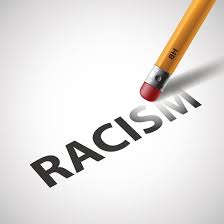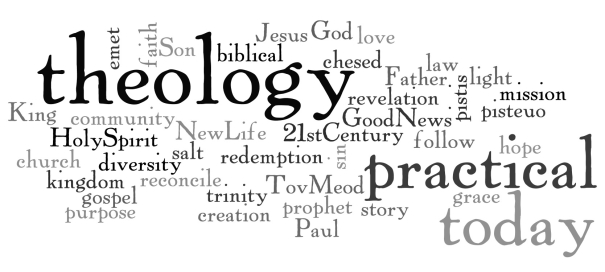I want to (need to?) write about my journey toward an understanding of racism. The events of the past few months – the murders of Ahmaud Arbery, Breonna Taylor, and George Floyd – have caused me to reminisce about my journey with God in trying to understand racial injustice, especially as a white man of privilege.
My journey began in the mid-60s. As a high school student I struggled to understand the Civil Rights movement and its off-shoot events. I was enamored with Martin Luther King Jr.’s work as he attempted to bring the country’s attention to the plight of the Negro population. I don’t remember hearing the term “racism.” What I do remember was this: There is something radically wrong, though I couldn’t name or articulate it. I wanted to understand, but did not have anyone to process with me. Most of the people in my life wrote Martin Luther King, Jr. off as a trouble-maker. I could not. His assassination in Memphis had a profound impact on me, a farm boy in rural Minnesota.

1968 – My freshman year of college at NDSU. I lived in a dorm made up of 2-room suites. One of my “suite mates” was Leon Carroll, a sophomore from the South side of Chicago. I’m sure I “whelmed” him with questions and wonderments about life on the south side of Chicago. He helped me understand the life of a young black man in America. Though I didn’t know the term, I began to understand systemic racism. Kids of means could go to college and avoid the military draft and thus the Vietnam war. Most of Leon’s high school friends were drafted and already serving in Vietnam. Leon helped move my understanding forward.
Late 70s – As a volunteer Young Life leader, I was privileged to attend a national conference where Young Life staff wrestled with the makings of a of a new Mission Statement. The final Statement included an incarnational commitment: To seek out and welcome all those whom God directs to our ministry, male and female of all races, salaried and volunteer, with a diversity of Christian traditions linked in our common purpose, and to honor their calling and encourage the fullest expression of their gifts. Young Life was making an unprovoked statement about women and minorities in ministry. No other evangelical organization dared touch such topics. I was proud of Young Life, though I could not articulate why. I was still trying to understand.
1980s – We moved to Muskogee, OK, for an engineering job. It was my first time experiencing economic disparity. And the disparity ran along color lines. Whites were privileged to live in the newer parts of town. Our realtor – a white, “upstanding, Christian man” – steered us away from older housing developments that were being “invaded by the Blacks,” jeopardizing future home values. The factory where I worked was on the “wrong side of the tracks.” I saw serious poverty for the first time in my life. I began to understand that something was amiss, something greater than simply personal prejudice.
1994 – We found ourselves in the heart of the South (Memphis, TN) when my position was relocated to the company’s corporate headquarters. What we experienced in Oklahoma was mild compared to Memphis, located at the head of the Mississippi delta where manual cotton-picking reigned supreme through the 19th century and into the mid-20th century. I watched my kids wrestle with extreme prejudice and racism at school and among their Christian friends. It was confusing for them. It was confusing for me!
We attended a church in a white suburb, started by a couple former Young Life staff. Though both white and leading a predominantly white congregation, they determined not to be a typical southern church, encamped in the the suburbs, distanced from the plight of the city. They were intentional about educating people with an understanding of God’s heart* and how such an understanding might affect the way we lived. A few times a year, they hosted an Urban Plunge, where participants spent several days in the heart of Memphis, living at the downtown YMCA. The intent of a Plunge was to prick consciences and educate the participants. Plunges always began by spending several hours at the National Civil Rights Museum located at the Lorraine Hotel where Dr. Martin Luther King, Jr. was assassinated (which most white Memphis natives had never visited), generating robust and emotional discussions.
To this point in my life, I, like most white Americans, viewed racism as simply prejudice fueled by hatred. I think many still do today. What I didn’t understand, but learned during my Urban Plunge experience, was that racism isn’t just a derivative of personal prejudices. I learned the sociological description of racism – the ability and wherewithal of a dominant social group to suppress and keep subservient another sector of society. I began to understand. Racism, by its very nature and definition, is systemic. As we continued to live in the Memphis area, the systemicness of racism became clearly evident everywhere I went. Black people had to prepay at the gas station. I never did. Black people did not get to sit in the prime seats at high school sporting events. We didn’t have to bag our groceries. Black people did. I was told, “We have to provide jobs for the those people.”
I will continue to describe my journey in subsequent posts. For now, this is what I would like us to consider: We cannot treat racism as simply a personal ideology with the assumption that we can’t possibly be racist, referencing the adage, “I don’t hate anyone.” As part of the privileged and dominant group, I, as a white male, am part of a system that suppresses and keeps another people subservient whether I like it or not. Once we begin to understand and accept this, we can begin to make a difference.
Here’s the rub for us: The problem is so massive and pervasive that we feel there isn’t anything we can do or say to make much difference. We don’t know what to do. We don’t know what to say. So we retreat into doing and saying nothing. However, silence is complicity. Silence can speak volumes.
* And what does the Lord require of you?
To act justly and to love mercy
and to walk humbly with your God. (Micah 6:8)

Nice way to frame it Curt now I am waiting for the next post.
LikeLike
Thank you Curt.
LikeLike
You are welcome!
LikeLike
You are welcome, Muriel! Hope you are well.
LikeLike
Thanks!
LikeLike
I’ve always valued your thoughts and perspectives so as soon as I saw the topic of your blog I knew I HAD to read it. “Here’s the rub” hit home for me. Thank you. I’ve got some work to do…
LikeLike
Thanks, Katelyn. I think we all have some work to do!
LikeLike
Thank you Curt!!!
LikeLike
Thanks, Tammy. Glad it was of benefit.
LikeLike
This underscores in a real and hope filled , transparent way, how we are all on a journey and should be seeking a deeper, sometimes troubling understanding of ourselves…… Thanks Curt! Skillfully written.
LikeLike
Thanks, Bjork. This one took me a few hours to process, write, reprocess, rewrite, etc….
LikeLike
Thanks for the words Curt.
LikeLike
You are welcome, Jake (or are you going by Jacob, these days?)
LikeLike
Thanks!
LikeLike
Curt,
I look forward to you next post in hope that it will give me some real changes that I can make in my life to make me a better human being.
Love and Respect to you.
Dan
LikeLike
Thanks, Dan. I don’t know how much of my blog you’ve read, but where I go with this conversation will be building from much of what I’ve written over the past year.
LikeLike
Curt, This is the same Leon Carroll you refer to earlier in your blog. It has been 50 years since we shared that Suite in the North High- rise. I recall vividly visiting your family farm in Elk River and how hospitable your family was. We have lived very different lives since that time but I am glad that small capsule of life was beneficial to BOTH of us. I recall my days at NDSU as being the gateway to life in a world much larger than we had experienced in the late 60s. I have been fortunate to move around as have you. I have been to every inhabited continent and learned a lot about how people from different cultures live and more importantly how they view Americans. I am happy that I was able to start that journey in that 4 person suite and happier to have had you in the suite. I, too, learned a lot. God Bless, Leon
LikeLiked by 1 person
Thanks, Leon! To this that wander into the “Comment” section, this will be fun for them to read. Blessings to you, as well!!
LikeLiked by 1 person